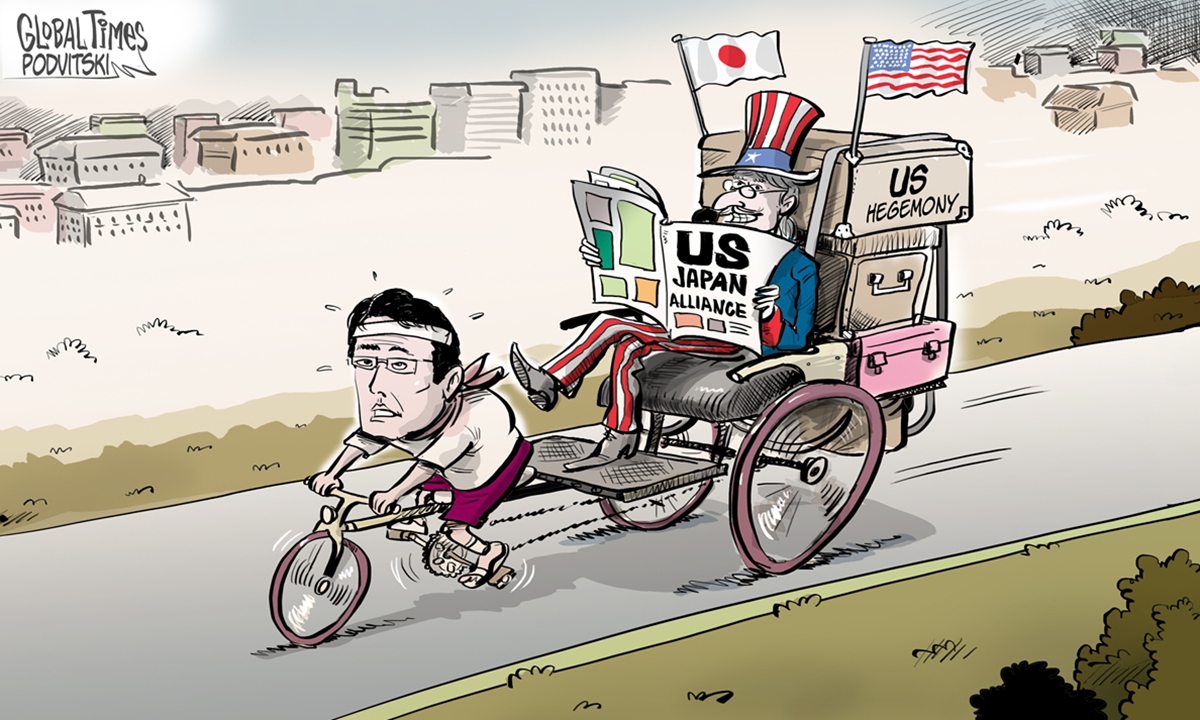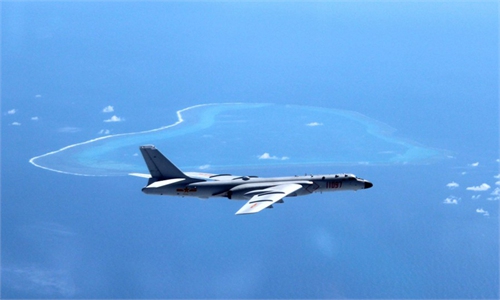
Well-trained pawn Illustration: Vitaly Podvitski
The G7 Foreign Ministers' Meeting was held in Tokyo on Tuesday and Wednesday. As usual, we haven't seen G7 play a role to maintain the stability and peace in the world.
Firstly, the conflict between Russia and Ukraine and that between Israel and Palestine were the main topics of the meeting. "Our commitment to continue strict sanctions against Russia and strong support for Ukraine has not wavered at all, even as the situation in the Middle East intensifies," Japan's Foreign Minister Yoko Kamikawa told a press conference.
In terms of the Middle East, the latest statement reads, "We stress the need for urgent action to address the deteriorating humanitarian crisis in Gaza … We support humanitarian pauses and corridors to facilitate urgently needed assistance, civilian movement, and the release of hostages."
However, they didn't mention the need to call for an immediate ceasefire to ensure the safety of people in those areas and prevent further casualties. We have to ask whether the assistance of G7 club to the Ukraine will be useful or beneficial for easing the conflict between Russia and Ukraine and whether their statement can bring a substantial ceasefire in Gaza and other related areas at once.
Secondly, G7 is in no position to point fingers at China's domestic affairs. However, US Secretary Antony Blinken at a press in Tokyo criticized so-called China's "economic coercion" and China's actions in the South and East China Seas as well as over the Taiwan question. He also vowed to continue the "de-risking" attempts.
The world economy is facing huge downside risks and great uncertainty currently, and the biggest risks threatening the future world economy are the de-risking or decoupling moves by the Western countries. This is actively advocated by the conservatism in some Western countries, especially the members of the G7 club. In view of this, the G7 members should take the lead in abandoning this unhealthy mindset, and enhance the trade, technology and personnel exchange with other partners in the world.
Thirdly, holding the presidency of the G7 club, Japan should cherish the chance to share its opinions on the topics of global politics, economy, security and other sensitive issues. And more importantly, Japan should convey the voices of all the Asian countries on the G7 platform, and make the other members in the G7 club understand and respect the real thoughts of Asia, which can actively contribute to maintaining stability and peace in the Asian region.
However, it is a pity that it is difficult for Japan to address its own foreign policies in a completely independent and autonomous state. And in the G7 club, we see Japan constantly speak on behalf of the US. And to be frank, Japan has completely lost the sense of balance in its foreign policy toward the US. As a consequence, it has become one of the diplomatic followers of the US in the Asia-Pacific region.
The current foreign policies of Japanese Prime Minister Fumio Kishida administration are severely constrained by the conservative forces in Japan. And because the approval rate continues to decline, the Kishida administration wants to make some achievements on the diplomatic and security fields to win public support, which have been the cause of tensions and uncertainty on security issues in East Asia.
To sum up, the world security still faces enormous challenges. In view of this, we urgently need sincere action to be taken to avoid conflicts and wars, but we don't need insincere conversation.
The author is senior research fellow at Shanghai Institutes for International Studies. opinion@globaltimes.com.cn

